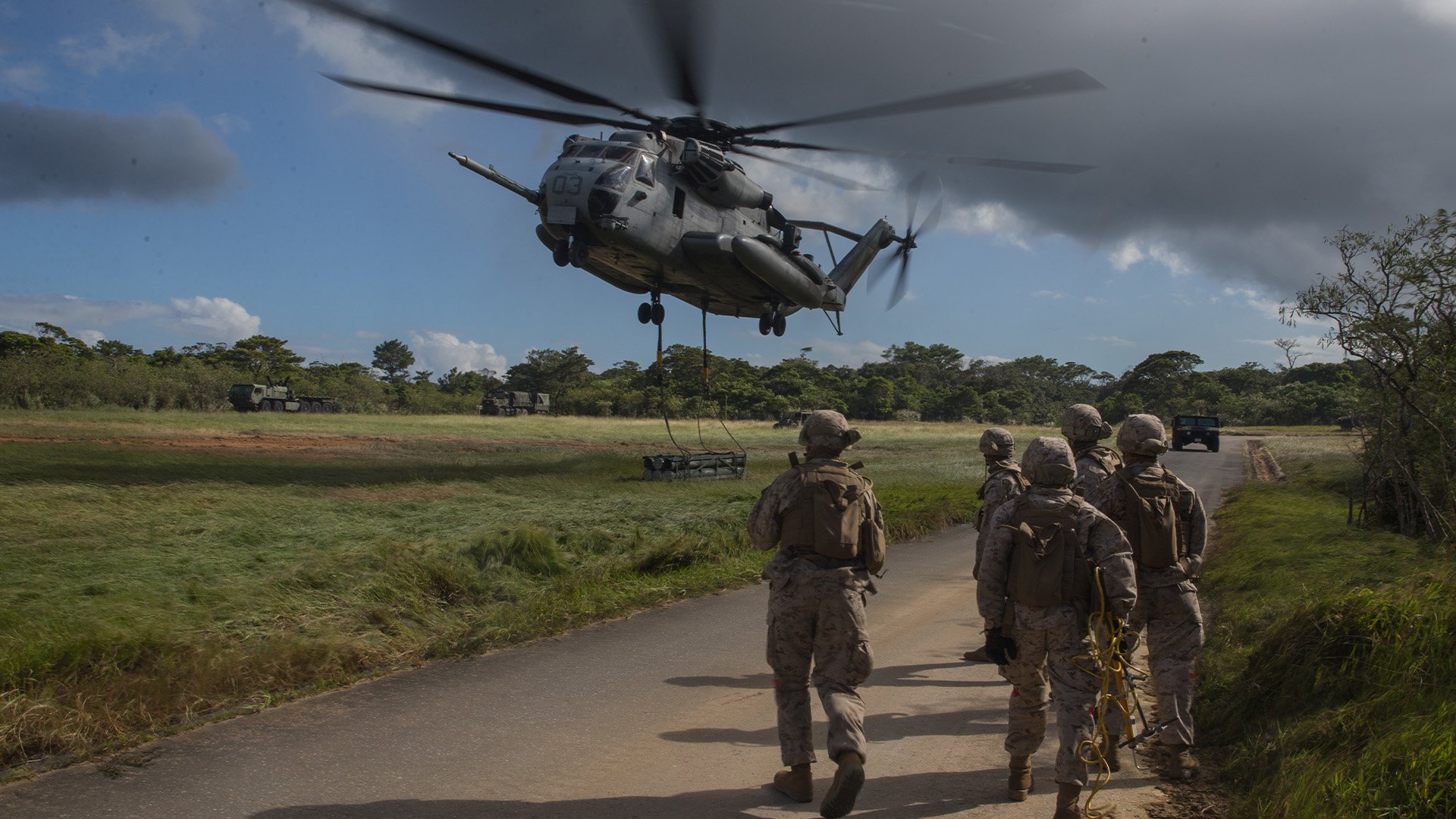
An early 2017 rape scandal rocked the “Flying Tigers” of the California-based Marine Heavy Helicopter Squadron 361, shown here retrieving a High Mobility Artillery Rocket System from Landing Zone Dodo, Okinawa, Japan, on Oct. 19, 2020. But a recent appellate court ruling might free convicted Lance Cpl. Guillermo Cabrera. US Marine Corps photo.
A Marine who’s been behind bars for nearly six years was wrongly convicted because of prosecutorial shenanigans and a string of snafus by two military judges, and he might soon be freed.
That’s what a tribunal at the US Navy Marine Corps Court of Criminal Appeals unanimously ruled on Jan. 26, setting the stage for the release of Lance Cpl. Guillermo Cabrera from the brig at Marine Corps Air Station Miramar in California.
At issue is whether a tainted trial should’ve sparked a second court-martial of Cabrera, where he was found guilty of sexually assaulting a fellow Marine while she slept. The judges determined the Corps violated Cabrera’s constitutional right to avoid double jeopardy — standing trial twice for the same offense — and his prosecution should be tossed out and never resurrected.
That means Cabrera’s reduction to private, ongoing confinement for seven years, and eventual dishonorable discharge will be reversed, unless the brass file and win an appeal before the Court of Appeals for the Armed Forces.
“As this case is still pending a decision for further appeals it is considered an ongoing legal matter at this time,” read a prepared Marine Corps statement emailed to Coffee or Die. “The Marine Corps does not comment on ongoing legal matters.”
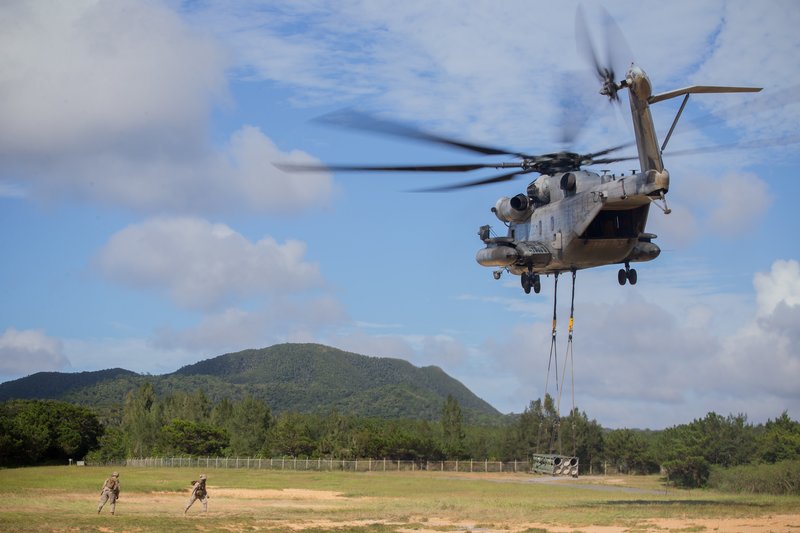
A CH-53 Sea Stallion helicopter from the “Flying Tigers” of Marine Heavy Helicopter Squadron 361 lifts off with a High Mobility Artillery Rocket System (HIMARS) at Landing Zone Dodo, Okinawa, Japan, October 19, 2020. US Marine Corps photo by Cpl. Ryan Harvey.
The Marines might not find a sympathetic ear at the military’s highest court. The CAAF struck down Cabrera’s second court-martial in 2020 and remanded it to lower courts for more fact-finding and analysis, which is what produced the latest ruling.
Although the appellate judges determined Cabrera’s conviction was unlawful, he continues to languish in the military’s Long Term Prisoner Program in San Diego as a buck private active-duty Marine, according to the Corps.
A helicopter airframe mechanic with the “Flying Tigers” of Marine Heavy Helicopter Squadron 361, Cabrera’s legal woes began shortly after Jan. 14, 2017, when the alleged victim accidentally locked herself out of her barracks.
She also was a lance corporal in the same squadron. She reluctantly agreed to go out drinking in San Diego with Cabrera and their fellow Marines. But court records reveal she drank so much booze that she blacked out.
The last thing she remembered was smoking a cigarette outside a tavern while the other Marines debated whether to hop to another bar, she told investigators.
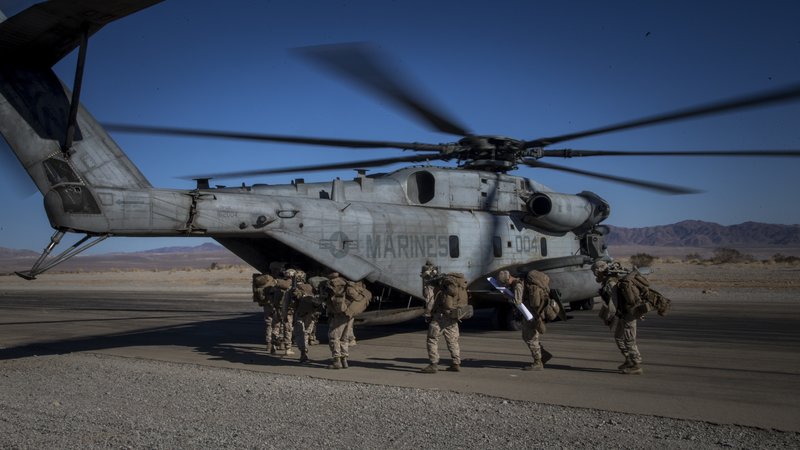
Marines and sailors with Marine Heavy Helicopter Squadron 361, Marine Aircraft Group 16, 3rd Marine Aircraft Wing, conduct a ground extraction at Landing Zone Sandhill with 3rd Battalion, 2nd Marines, at Twentynine Palms California, Oct. 18, 2021. US Marine Corps photo by Sgt. Dominic Romero.
She later said she awoke in Cabrera’s bed that evening with a pillow over her face. Her pants were down, and Cabrera was penetrating her; she panicked and froze, then fell asleep or lost consciousness, she recollected.
When she arose in the morning, her pants were back up and the pillow wasn’t over her face. Cabrera was sleeping on the floor next to her, with his arm over his eyes, she recalled.
She demanded that Cabrera find her iPhone and drive her back to her barracks. Then she called the base’s sexual assault hotline, which kicked off a rape investigation.
Throughout the investigation, however, she refused to let Naval Criminal Investigative Service agents search her phone to read her messages with Cabrera, which they insisted was necessary to establish a timeline of events.
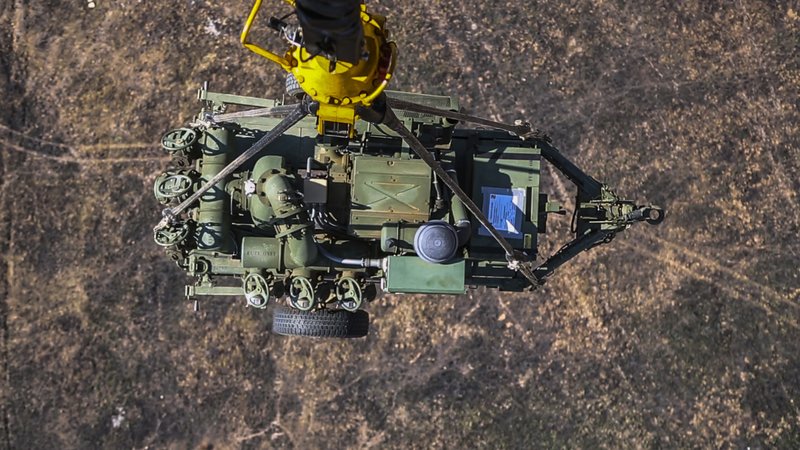
US Marine Heavy Helicopter Squadron 361 conducts external lifts on Camp Pendleton, California, May 18, 2021. US Marine Corps photo by Lance Cpl. Rachaelanne Woodward.
NCIS agents nevertheless participated in what’s termed a “controlled call” with Cabrera. The alleged victim initiated the conversation, and law enforcement monitored the conversation.
During the call, however, Cabrera denied that he had sex with her. NCIS shook off the setback by interrogating him several days later.
Cabrera continued to insist he never had sex with her. Then they pointed to a rape kit prepared in the wake of the boozy evening in San Diego, and told Cabrera he had to give them a DNA sample.
The agents said Cabrera quickly confessed to assaulting her while she was sleeping, and a sample of his DNA later matched the genetic material in her rape kit, too.
On March 7, 2017, Cabrera was placed in pretrial confinement after being charged with sexually assaulting a sleeping buddy.
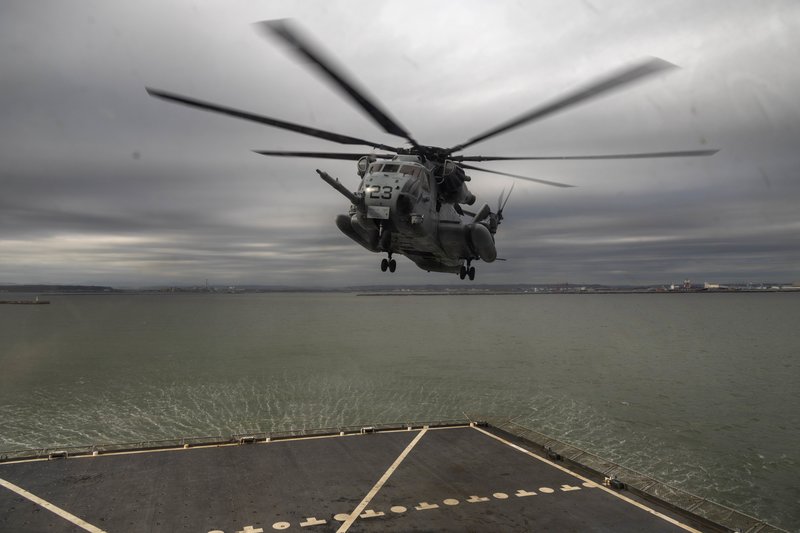
A US Marine Corps CH-53E Super Stallion with Marine Heavy Helicopter Squadron 361 flies toward the landing deck of the dry cargo ship Sacagawea at Kushiro Port, Japan, Oct 13, 2022. US Marine Corps photo by Lance Cpl. Federico Marquez.
But Cabrera took it to trial, arguing that what probably happened was consensual but regrettable sex between two friends, with neither Marine fully understanding what happened because they were so intoxicated.
In the courtroom, the military prosecutor’s case against him began to go sideways.
Then-Capt. Ashley D. Westman asked the purported victim “a leading question related to her decision not to provide text messages” to federal investigators probing the case, according to court filings.
“I had had a problem with the … phone … after a certain amount of time,” the alleged victim testified. “It’ll delete the text messages. It’ll delete the phone records. I don’t have any control over that; it’s just something that my phone does automatically.”
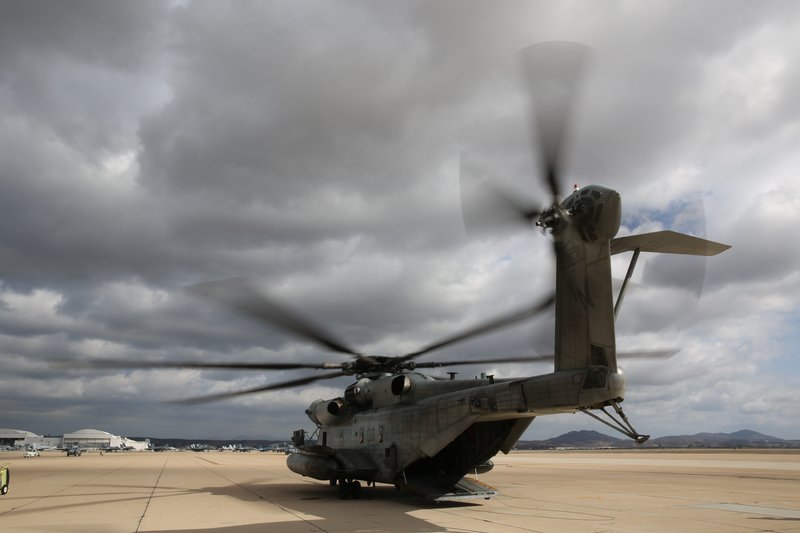
A CH-53E Super Stallion helicopter crew with the “Flying Tigers” of Marine Heavy Helicopter Squadron 361 prepares for an external lift exercise inside Marine Corps Base Camp Pendleton, California, on Nov. 20, 2013. US Marine Corps photo.
To the defense team, that seemed fishy.
According to court records, they already were concerned about Westman’s youth and inexperience in a courtroom, so they requested a special hearing about her handling of both the witness and the evidence collected in the case.
During that session, Westman admitted to passing notes with the Victims’ Legal Counsel — an advocate paired with the female Marine — about the alleged victim’s decision to keep agents from looking at her iPhone.
The judge, Lt. Col. Brian Kasprzyk, also soon discovered that Westman had interviewed the alleged victim on the morning before her testimony, but she “denied having conducted any additional interviews” when asked by defense counsel about it, according to the ruling.
And the prosecutor also never told the opposing side that the purported victim “made inconsistent statements regarding her body position and the state of her clothing when she awoke after the alleged assault,” facts that might’ve convinced a military jury that she was an unreliable witness.
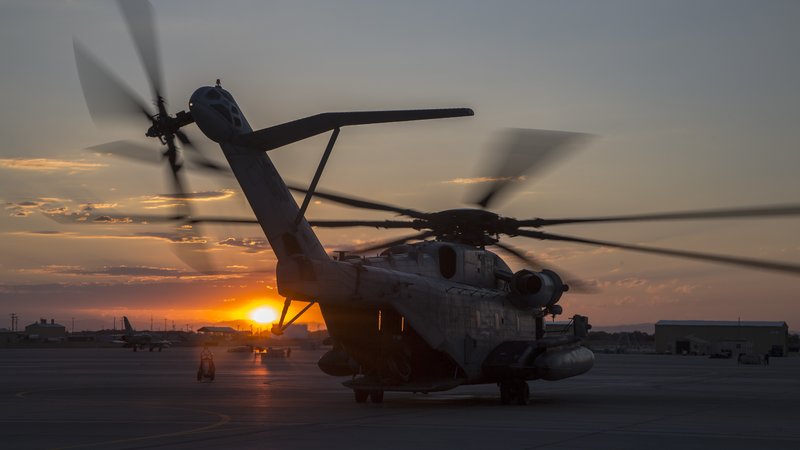
Marines attached to Marine Heavy Helicopter Squadron 361 assemble the ramp mounted weapon system on a CH-53E Super Stallion helicopter at Naval Air Station Fallon, Nevada, on June 21, 2021. US Marine Corps photo by Lance Cpl. Rachaelanne Woodward.
The judge also discovered that emails sent by the alleged victim to her command were provided to the Victims’ Legal Counsel, but kept from defense attorneys who’d asked to read them.
“While it is not hard to understand how a victim and her lawyer may be more inclined to cooperate with the government, that does not mean the government should be able to exploit that relationship during trial to ambush the defense with previously undisclosed factual assertions designed to rehabilitate the victim’s credibility,” Kasprzyk told the lawyers.
Neither the judge nor the defense team claimed that Westman engaged in misconduct, only that Cabrera’s trial was probably tainted beyond repair. In its prepared statement to Coffee or Die, the Corps confirmed “there was no professional responsibility complaint made” about her, only that the “Regional Trial Counsel was alerted to the discovery issues and the mistrial.”
Westman declined comment when reached by Coffee or Die. She was promoted to major in 2021 while in the Individual Ready Reserve.
A review of her law license in Illinois revealed an unblemished record.
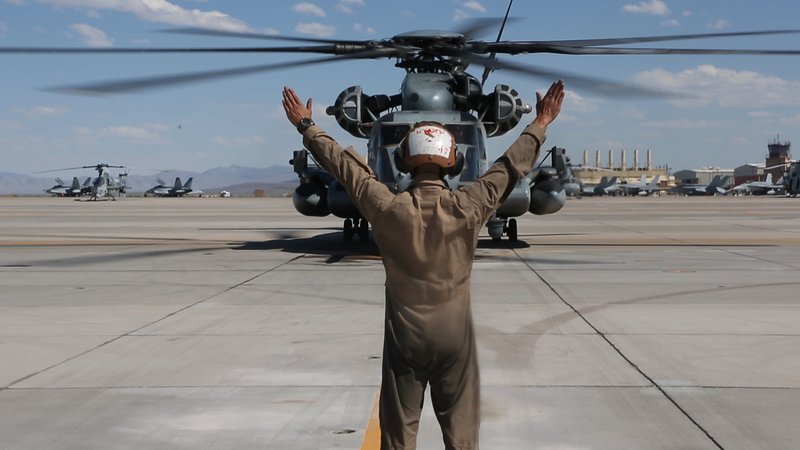
A CH-53E Super Stallion helicopter from Marine Heavy Helicopter Squadron 361 lands after a test flight at Naval Air Station Fallon, Nevada, on June 21, 2021. US Marine Corps photo by Lance Cpl. Rachaelanne Woodward.
Defense attorneys urged Kasprzyk to dismiss the case with prejudice, so the Corps couldn’t take a second stab at convicting Cabrera for the same crimes. But the judge disagreed and instead moved for a mistrial, which greenlighted the Marines to prosecute Cabrera again.
A key problem for the appellate judges, however, was their perception that Kasprzyk wasn’t handling Cabrera’s case with clean hands.
He’d applied “for employment with the prosecution” while trying the lance corporal, and failed “to disclose the conflict to the defense,” wrote Navy Cmdr. Christopher J. Deerwester in his opinion.
Now retired from the Corps, Kasprzyk didn’t reply to multiple messages from Coffee or Die seeking comment.
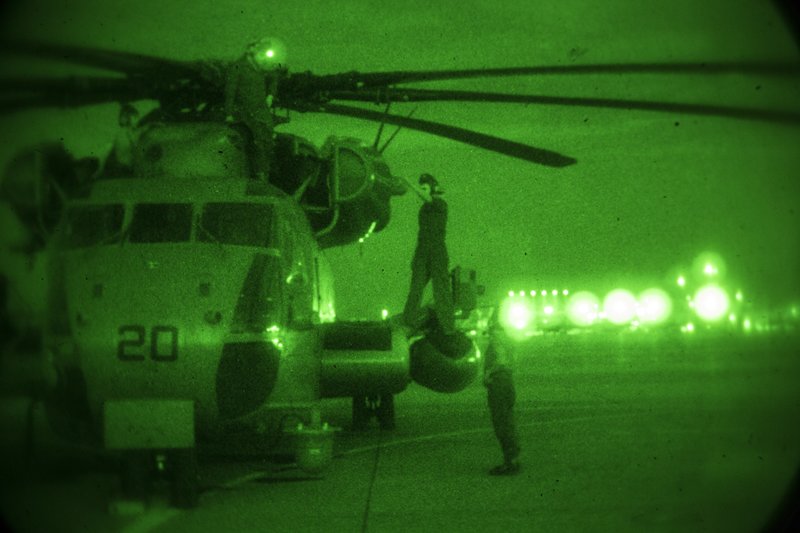
Aircraft night crew maintainers attached to Marine Heavy Helicopter Squadron 361 perform routine maintenance at Naval Air Station Fallon, Nevada, on June 16, 2021. US Marine Corps photo by Lance Cpl. Rachaelanne Woodward.
The appellate judges determined that before he declared a mistrial, Kasprzyk also should’ve tried multiple means to mend the mess, including evicting the prosecutor from case, ordering a new round of discovery to find and analyze hidden evidence, issuing new instructions to the jury, and perhaps allowing a looser cross-examination of the alleged victim to find out the facts.
But he didn’t try any of those solutions, and the Corps convened Cabrera’s second court-martial.
His new legal team asked a new Marine Corps judge, Col. Matthew J. Kent — like Kasprzyk a highly respected judge advocate general with decades of experience — to dismiss the case because of double jeopardy.
But Kent disagreed, arguing that the attorney in the first trial had consented to a mistrial, and a panel of Cabrera’s peers convicted the lance corporal on the sexual assault charges.
Kent sentenced Cabrera to prison on March 8, 2018.
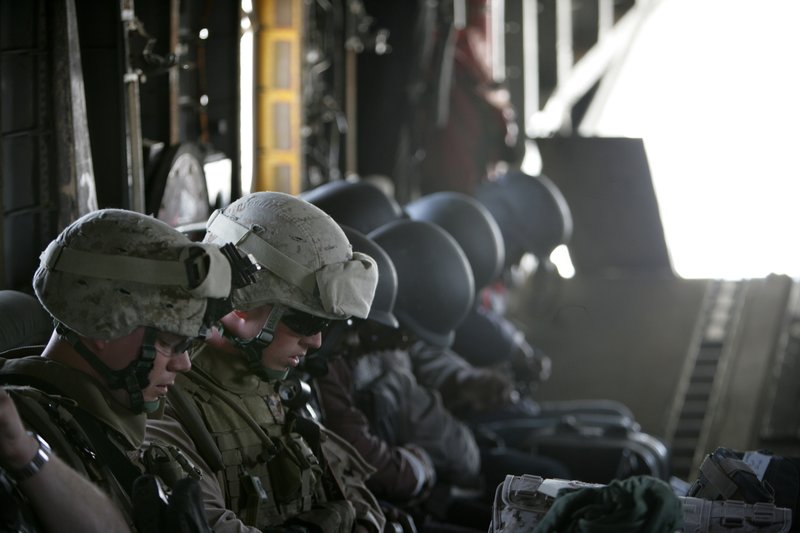
Marines, soldiers, and sailors and federal civilian workers wait for takeoff on board a CH-53 Super Stallion helicopter from Marine Heavy Helicopter Squadron-361 on March 7, 2008, in Al Asad, Iraq. US Marine Corps photo by Cpl. Justinn B. McElderry.
The appellate court ruled that Kent made a few mistakes.
First, they determined, he should’ve recused himself from the trial because of unspecified close ties to Kasprzyk. They also disagreed with his determination that Cabrera’s first attorney had consented to a mistrial, because he hadn’t, according to their ruling.
To the tribunal, the case should’ve been permanently dismissed, and Cabrera freed.
“The canon of judicial ethics prohibits me from commenting on such matters, particularly those that are subject to further judicial review,” Kent told Coffee or Die in an email.
According to the docket, the Corps has yet to appeal the tribunal’s decision.
Read Next: Navy Releases First Photos of Chinese Balloon Recovery

Carl Prine is a former senior editor at Coffee or Die Magazine. He has worked at Navy Times, The San Diego Union-Tribune, and Pittsburgh Tribune-Review. He served in the Marine Corps and the Pennsylvania Army National Guard. His awards include the Joseph Galloway Award for Distinguished Reporting on the military, a first prize from Investigative Reporters & Editors, and the Combat Infantryman Badge.
BRCC and Bad Moon Print Press team up for an exclusive, limited-edition T-shirt design!
BRCC partners with Team Room Design for an exclusive T-shirt release!
Thirty Seconds Out has partnered with BRCC for an exclusive shirt design invoking the God of Winter.
Lucas O'Hara of Grizzly Forge has teamed up with BRCC for a badass, exclusive Shirt Club T-shirt design featuring his most popular knife and tiomahawk.
Coffee or Die sits down with one of the graphic designers behind Black Rifle Coffee's signature look and vibe.
Biden will award the Medal of Honor to a Vietnam War Army helicopter pilot who risked his life to save a reconnaissance team from almost certain death.
Ever wonder how much Jack Mandaville would f*ck sh*t up if he went back in time? The American Revolution didn't even see him coming.
A nearly 200-year-old West Point time capsule that at first appeared to yield little more than dust contains hidden treasure, the US Military Academy said.












